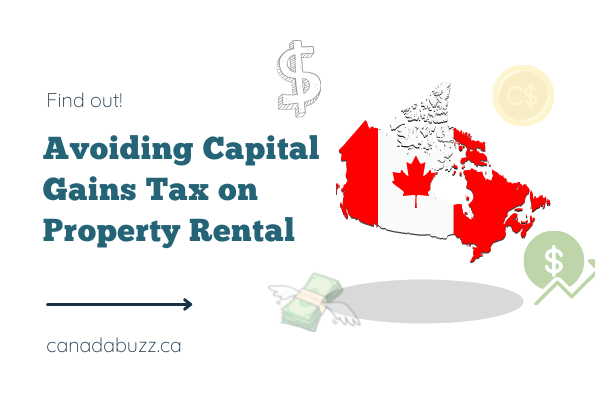In Canada, that sale is subject to taxes anytime you earn an income from a sale. These types of sales are referred to as Capital Gains, and this rule applies to many real estate properties. But because Capital Gain Taxes can be so high, many people like to try to avoid them. Today we’ll discuss how.
What is a Capital Gain?
As mentioned above, anytime you earn an income from a large sale in Canada, that sale is referred to as a Capital Gain. For example, for the purpose of this article, let’s say you are selling a rental property. You originally purchased the property for $300,000, and now you are selling it for $500 000. You are now selling the property for more than you originally purchased it for and are making a profit. This is referred to as a Capital Gain.
Capital Gains apply not only to rentals, cottages, and other real estate properties but also to stocks, bonds, ETFs, and mutual funds. It also applies to building sales, equipment sales, and land sales.
Side note: If you were to sell your property for less than what you originally purchased it, this would be referred to as a “Capital Loss.”
How much are Capital Gains Taxes?
To calculate how much your Capital Gains Taxes would be, you first need to calculate what your Capital Gains are. Luckily, this is pretty simple.
To calculate your Capital Gains, you need to subtract the original price you paid for your property from the price you sold it for. Let’s go back to our original example – you originally bought the property for $300 000 and sold it for $500 000.
Your Capital Gains would be calculated as such : $500, 000 – $300 000 = $200, 000.
Easy right?
Now, only 50% of your Capital Gains are taxable. In our example, this means you can only be taxed on $100 000. If your name is on the property, this amount is added to your other income and is subject to the marginal tax rate. Exactly how much tax you have to pay will depend on which tax bracket you fall into.
Do I have to list my property as a Capital Gain?
We’ve already established that you have to pay Capital Gains when you make a sale of a property. But here’s the good news – not all properties are subject to Capital Gains taxes.
Most specifically, your primary residence is not subject to Capital Gains Taxes. You can apply for the primary residence deduction if the property has been used as your primary residence. For a property to be included as a primary residence, you and your family must live there for some portion of the year. You can also only claim one primary residence at a time.
With all of that being said, it’s important to note that while there are some exemptions to paying Property Gains Taxes, you must still report the sale of all properties, even primary residences.
Many people have tried to avoid paying Capital Gains taxes on properties by claiming them as primary residences when really they were just “flipped”. For this reason, the Government likes to keep a close eye, and all sales must be properly reported.
Am I eligible for the Lifetime CRA Capital Gains Exemption?
In 1985, a $500 000 lifetime Capital Gains exemption became available for application. At the time, you could use it towards any asset. That said, this lifetime exemption was reduced to $100 000 in 1988 and completely eliminated by 1994.
Luckily, a new CRA Lifetime Capital Gains Exemption was put into place for anyone selling a small business, a farming property, or a fishing property. If eligible for the exemption, you may be spared from paying taxes on part or on all of the profit earned from a sale.
To qualify for the Lifetime Capital Gains Exemption, you must be classified as a small business corporation when the sale is made. Of course, it’s not quite that easy, and there are other requirements that must also be fulfilled. If you are selling a small business and are wondering whether or not you qualify for an exemption, we suggest that you speak to an accountant or lawyer to determine your options.
So how can I avoid Capital Gains Taxes?
While you may have gotten away with it at one time, you can no longer fool the government by listing rental or flipped properties as your primary residence to avoid Capital Gains taxes. With that being said, there are some things that you can do:
- Offset your Gains
If you have any other investments that you can label as a Capital Loss, you can use these losses to offset your gains. You can use your losses to offset any gains within the last 3 years. If you want, you can also carry your Capital Losses into the future.
2. Wait until retirement
If you’re nearing retirement age, you might want to hold off on selling your rental property. If your income is lower after retirement, the rate you will have to pay on your Capital Gains will be lower too. Depending on how low your income is after retirement, you might not have to pay Capital Gains on your sales at all.
3. Don’t sell within a year
If you’ve only had your rental property for less than a year, any Gains will be counted as part of your regular income. This means that you will be charged at a higher rate. Wait until you’ve held onto the property for more than a year, and then you may be able to reduce your Capital Gains rate.
While it’s difficult to completely avoid Capital Gains Taxes these days, there are some things that you can do to lessen them. Speak to a financial professional about your different options for offsetting your gains or lessening your rate.







